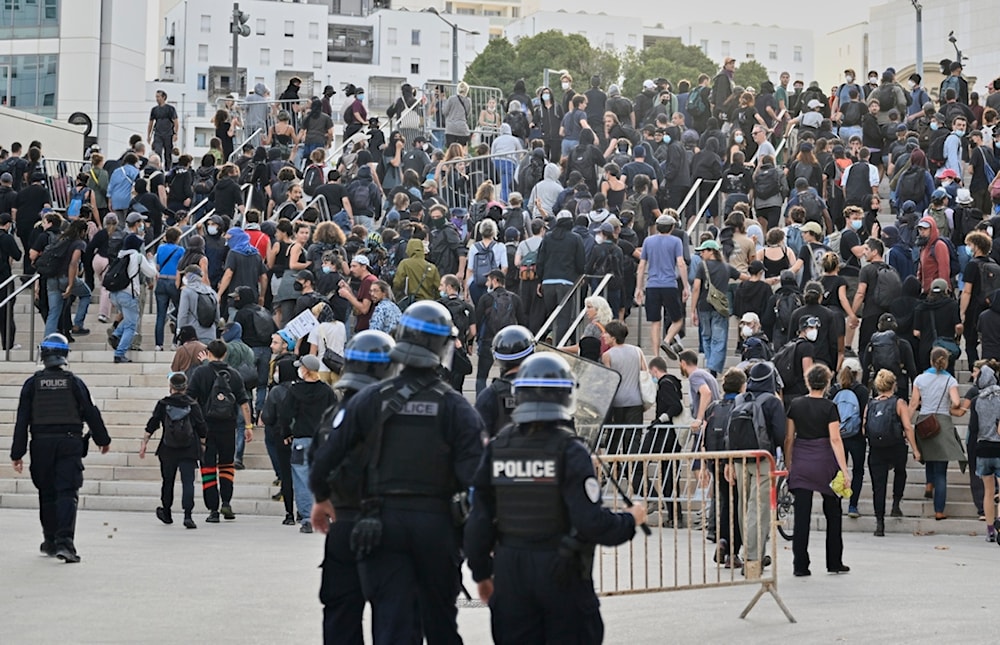Mass arrests as 'Block Everything' movement shuts down France
France is witnessing a new wave of mass mobilization under the banner of the "Block Everything" movement, with over 80 people arrested and more than 100,000 expected to take part in the protests.
-

French police disperse protesters during a gathering of the "Block Everything" movement in Marseille, south of France, Wednesday, September 10, 2025. (AP Photo/Philippe Magoni)
At least 83 people have been arrested across France as the "Block Everything" movement launched its first wave of nationwide protests on Wednesday, September 10, in opposition to austerity measures and government budget proposals.
According to police reports cited by BFM TV, 75 individuals were detained in Paris, while another eight were arrested in cities across the country.
The movement, which originated as a grassroots campaign online, is aimed at halting daily life in France in protest of the national budget plan proposed by outgoing Prime Minister Francois Bayrou.
Read more: Europe to offer Ukraine security guarantees post peace accord: Macron
More than 1,000 people joined protests across France, with over 30 separate gatherings reported in cities including Marseille and Lyon, where protesters overturned trash bins and blocked major roads.
Several high schools in Paris were also shut down by student demonstrations.
Organizers expect over 100,000 people to participate in the protest actions throughout the day, marking a significant escalation in public resistance to the government's proposed austerity measures.
The "Block Everything" movement was initiated by a small online group called Les Essentiels, which declared, "On September 10, we stop everything, not to escape, to say no." The movement has since gained backing from the leftist France Unbowed (LFI) party.
Political crisis deepens as Macron names new prime minister
The protests come amid growing political instability. On Monday, Bayrou lost a vote of confidence in the National Assembly, following opposition to his 2026 budget framework aimed at cutting €44 billion in public spending. France’s public debt currently stands at 113% of GDP, one of the highest in the European Union.
In response to the crisis, French President Emmanuel Macron appointed Defense Minister Sebastien Lecornu as the new prime minister on Tuesday. Lecornu has been tasked with consulting political parties before forming a new government.
Budget-related political infighting has become a persistent issue in French politics. Last year, the failure to pass the 2025 budget led to the collapse of Michel Barnier’s government after a no-confidence motion united both far-left and far-right parties.
In parallel with the grassroots movement, France’s major trade unions have announced a national day of mobilization on September 18, signaling a broader, more coordinated wave of resistance to the government's economic policies.
As tensions mount, the coming weeks are expected to test both the resilience of the protest movement and the ability of the Macron administration to restore political and economic stability.

 3 Min Read
3 Min Read









